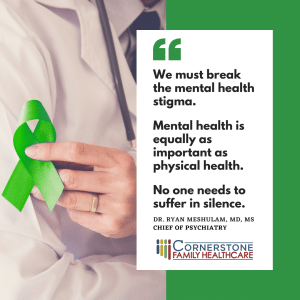Provider blog written by Koreen Thomas, FNP.
According to the Centers for Disease Control and Prevention, viral hepatitis caused 1.34 million deaths in 2015, a number comparable to deaths caused by tuberculosis and HIV combined. While deaths from tuberculosis and HIV have been declining, deaths from hepatitis are increasing. The World Health Organization (WHO) data show an estimated 325 million people worldwide are living with chronic hepatitis B or chronic hepatitis C.
Today, June 28th, is World Hepatitis Day and is an opportunity to learn the global burden of this disease, and the actions you can take to stay healthy. Koreen Thomas, FNP, a provider at Cornerstone Family Healthcare’s Highland Falls location, gave some useful information on a few types of hepatitis.
Hepatitis A:
Hepatitis A is a virus that is contracted through the fecal-oral route. The symptoms are nausea, vomiting, diarrhea and jaundice. Jaundice is the yellowing of the eyes and skin. Poor sanitation or sexual contact with a person with hepatitis A allows for transmission. The good news, is that hepatitis A usually resolves spontaneously and does not require a specific treatment. Once a person has hepatitis A, they cannot be re-infected.
There is a vaccine to protect a person from getting hepatitis A. This vaccine is now a routine part of the childhood immunization series and is also available for adults.
Hepatitis B:
Hepatitis B is a virus that affects the liver. It is spread through bodily fluids. For example, sharing needles. The symptoms are jaundice, abdominal pain and dark urine. Some people do not have symptoms. Hepatitis B infection can cause cirrhosis of the liver. Cirrhosis is when the liver becomes scarred and no longer functions. There is also a higher risk for liver cancer in the hepatitis B population. There is treatment for hepatitis B.
Children are now vaccinated at birth. There is also a vaccine for adults.
Hepatitis C:
Hepatitis C is also a virus that affects the liver and can lead to cirrhosis and liver cancer. There is no vaccine for prevention but there is a cure for hepatitis C. People born in the Baby Boomer generation, between 1945-1965, are encouraged to be tested due to the finding that they are 5 times more likely to have hepatitis C than other adults. There may be no symptoms of hepatitis C. Therefore, screening allows for diagnosis, treatment and a cure for those who have hepatitis C. It is contracted through blood exposure. For example, sharing needles, razors and toothbrushes.
Please discuss hepatitis with your health care provider, or call a provider from Cornerstone Family Healthcare at (845) 563-8000 and decide what is best for you to help prevent liver disease due to hepatitis.




